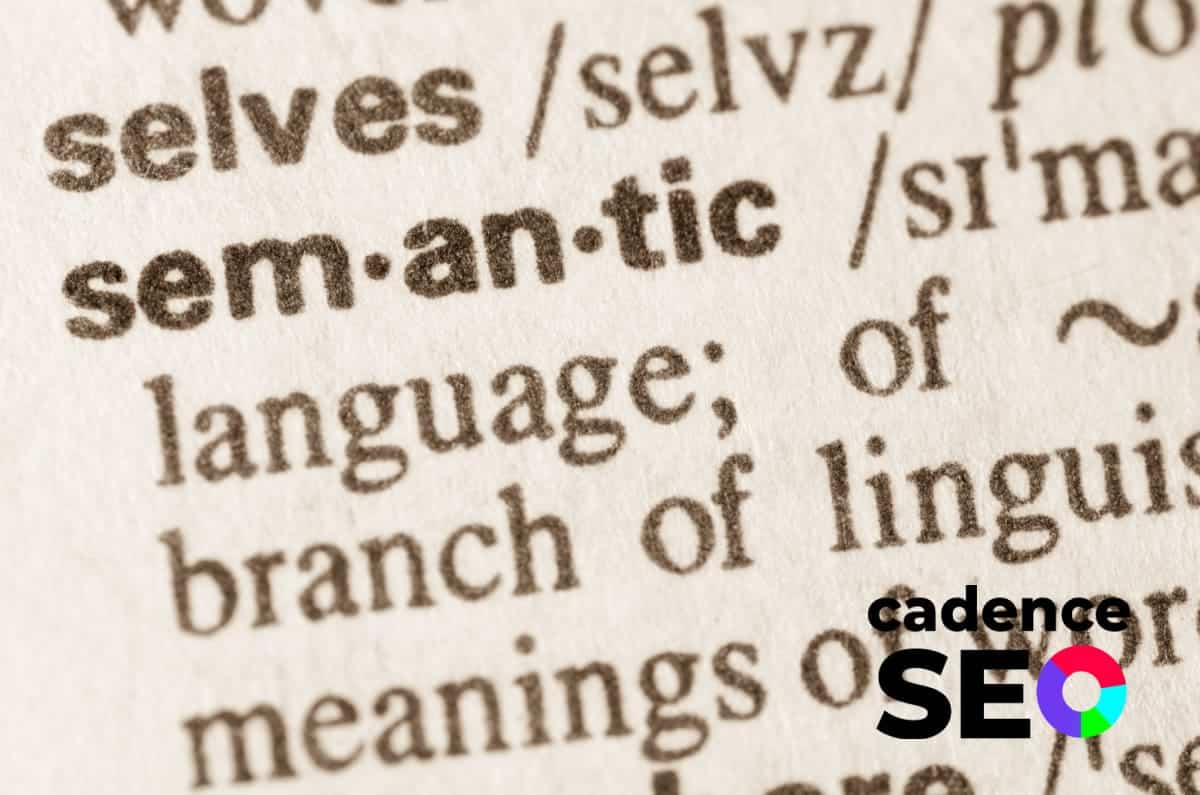In the early days of search engine optimization (SEO), crawlers only evaluated keywords to rank topics in search engine results pages (SERPs). That means if a user entered a keyword such as “electric bike benefits” into a search engine, crawlers would look for any content containing it. While that sounds helpful, it doesn’t go deep enough. Just because crawlers present content with the keyword “electric bike benefits” in SERPs, the article may not be about the benefits of an electric bike. If users have trouble finding the answers to their questions, they can become frustrated and abandon the search. With semantic SEO, that’s no longer a problem. Search engines have learned to utilize semantic analysis to understand human language better. Semantic SEO considers the natural language processing algorithms that search engines depend on. When businesses use semantic SEO strategies, users can find the type of high-quality content they want and engage with a brand effectively.
Semantic SEO, Defined
Going beyond optimizing keywords, semantic SEO is an advanced strategy focusing on optimizing content for meaning. It does so by considering the context, the relationship between words, and user intent to increase the visibility of website content in SERPs. Traditional SEO mainly relies on strategic keywords to optimize content. With semantic SEO, the semantic relationships between words, phrases, and concepts take center stage.
How Does Semantic SEO Work?
Search engines like Google and Bing work hard to understand how humans communicate. They utilize semantic analysis tools to index and categorize content. Semantic SEO strategies help search engine crawlers grasp your website content more efficiently. Here are ten ways semantic SEO works to gain recognition among crawlers:
Contextual Analysis
Instead of isolating keywords, semantic SEO analyzes the context. How are the words used? How do they relate to each other within the content?
Natural Language Processing (NLP)
With technology advancing in NLP, users no longer rely solely on typing in search engine queries. Voice search has become an increasingly sophisticated and convenient way for users to interact with search engines. Semantic SEO considers how people naturally phrase search engine queries. Content is strategically optimized to complement conversational language patterns. Whether users type or use voice commands, the content will be able to resonate with them.
Entity Recognition
Semantic SEO analyzes, identifies, and recognizes entities like places, people, or concepts. Understanding the relationship between entities allows search engine crawlers to grasp the nuances of content.
Latent Semantic Indexing (LSI)
With LSI, enterprises no longer have to be concerned about algorithms relying on the exact keywords incorporated into content. LSI utilizes semantically related synonyms and terms within content. It makes content creation richer, more engaging, and contextually relevant.
Structured Data Markup
With structured data markup, semantic SEO offers essential information and context for search engine crawlers to analyze. The markup helps to define the meaning and relationships within the content clearly. Again, when search engine spiders have an easier time grasping the content, the greater the chance you’ll be awarded higher rankings in SERPs.
User Intent Optimization
Why would users want to interact with your content? What problem does your content solve for users? Semantic SEO helps to align your content with user intent by creating content that gives users what they want. By doing so, your site can rank higher in SERPs.
Topic Modeling
What topics currently interest users? Semantic SEO weighs the relevance of topics to your target audience. Comprehensive content is then created around subjects that have value to your target audience.
User Experience (UX)
Good user experience is an essential component of semantic SEO. When content is engaging, informative, and easy to navigate, readers will have a positive experience. It can have an indirect yet powerful impact on your rankings in SERPs.
Optimized Multimedia Elements
Along with written content, semantic SEO can integrate multimedia elements like videos and images to boost user engagement. Optimizing media elements in your content is another great way to ensure good UX.
Continuous Adaptation
Search engine algorithms are always changing. SEO agencies and consultants stay current on the transformative landscape of search engine algorithms. They can adjust semantic SEO strategies to meet the ever-changing demands of search engine crawlers.
What are the Benefits of Semantic SEO?
Semantic SEO is a nuanced approach to strategically elevating your content’s online visibility. Here are six benefits of implementing semantic SEO into your digital marketing strategy:
Increases Organic Traffic to Your Website
When done correctly, semantic SEO can increase your brand’s visibility, boost rankings in SERPS, and ultimately bolster the volume of organic traffic clicking over to your site. Once on your site, they can explore all your great products, services, and content.
Improves Content Quality Signals for Search Engine Crawlers
Semantic SEO improves your search rankings by making it easier for search engine crawlers to understand what your site is about. Spiders are more likely to show deference to a site that is easy to comprehend. Semantic SEO allows you to create easier content for humans and crawlers to understand—a win-win situation!
Improves Your Brand Authority with Searchers
One of the biggest benefits of semantic SEO is its ability to help you build stronger brand authority. If a user lands on your site after searching for a specific topic and finds you’re an expert in that field, they’ll be more likely to trust what you say or sell.
Increases Chances of Being Included in People Also Ask Feature
People Also Ask (PAA) is a Google SERP feature that uses algorithms and manual analysis to determine relevant questions related to a user’s original search query. When your content is strategically optimized with semantic SEO, Google search engine crawlers can reward your content by including it in the PAA feature. The PAA feature provides good UX by making it extremely convenient for users to get answers to several questions, all in one place.
Allows You to Represent Your Brand and Define Your Niche Accurately
Semantic SEO is an important part of modern digital marketing because it helps search engines understand what your business does and how you fit into your industry. Customers want to know who they’re doing business with, so accurately representing your company and its niche is important. Using semantic SEO, you can more easily define what type of products or services you offer and how they stand out from your competitors.
Elevates Conversion Rates and Reduces Bounce Rate
Semantic SEO increases user engagement and conversions on your site by helping search engines understand what your page is about so they can return more relevant results for people looking for what you offer. It also helps reduce bounce rates. If your content is relevant to what a user is searching for, they’re more likely to stick around to read, enjoy, and share your content.
How To Use Semantic SEO
Semantic-rich content can significantly impact your ability to increase website traffic, build credibility and authority, and propel business. Here are five ways to utilize semantic SEO:
Optimize for Keyword Clusters
Keyword clusters are groups of keywords that are similar and have semantic relevance to one another. Search engines don’t depend on a single keyword per page. Using multiple keywords in a similar semantic cluster can maximize the number of keywords you rank for in SERPs. It will also give your content more weight among users.
Enhance Topical Depth and Content Length
Even though length is not necessarily a determining factor for boosting ranking, it can still provide search engine crawlers with strong semantic signals. When you provide nuanced, in-depth, and useful information about a relevant topic to readers, you easily increase the length of your content.
Integrate Synonyms & Related Terms
Google’s algorithms and NLP models have greatly advanced; they utilize semantic analysis to index and categorize your content. That means your content isn’t confined to sticking with keywords to rank high in SERPs. It’s a good idea to integrate a variety of synonyms and related terms to your initial keywords. Google will be able to recognize it, and your readers will experience a more engaging piece of content.
Provide Structured Data
While structured data is a mainstay of traditional SEO, it certainly has value with semantic SEO.
Structured data helps define essential information about content and classifies it. For example, a recipe page may include information on ingredients, cooking time, calories, and desired temperature. Anytime you can clarify your content for search engine crawlers, you make it much easier for them to index and categorize it. They’ll most likely reward you with a higher rank in SERPs.
Create Topic Clusters on Your Website
While keyword clusters focus on one particular piece of content, topic clusters are groups of content pieces that revolve around a primary topic. For example, you can create a lengthy, comprehensive article on a topic that will serve as the centerpiece of your topic cluster. This piece is known as a “pillar” piece. It will cover a broad range of information on the topic. Three shorter articles, known as “supporting” pieces, can touch on narrower aspects relevant to the pillar piece. With pillar and supporting content, topic clusters can help drive the success of your semantic SEO strategy by establishing your site as an authority on a particular topic.
Get Semantic SEO Advice from Cadence!
CadenceSEO is a full-service SEO agency and consultancy that offers expert advice and services for companies looking to improve their digital presence. If you’re interested in integrating semantic SEO into your digital marketing strategy, we can help! Contact our team of SEO nerds today for a free consultation!






